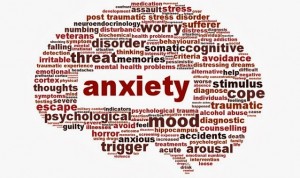
Image: anxietywellness.org
As a privately practicing therapist in Fort St. John, British Columbia, Eddi Sponza counsels couples, families, and individuals of all ages. Eddi Sponza focuses particularly on the treatment of anxiety in its various forms.
While almost everyone experiences situational anxiety around a high-stakes event, such as a first date or a review at work, some individuals experience long-term chronic worry that interferes with daily function. When anxiety reaches this level, it becomes a diagnosable anxiety disorder. These disorders typically develop in one of three primary forms.
Generalized anxiety disorder, or GAD, causes an individual to worry excessively and continuously. Feelings of concern and fear may be ongoing for several days or may be episodic, though these experiences are typically out of logical proportion to the situation. Physical symptoms, such as a racing heart and difficulty concentrating, are also common elements of the condition.
Likewise, an episode of panic disorder can arise any time and often without warning. Panic attacks, however, generate intense feelings of fear and often severe physical symptoms like chest pain, palpitations, and a sensation of choking. Such attacks make an individual feel out of control and can cause a person to worry in between attacks about when the next one will occur.
Social anxiety is somewhat more predictable in that it correlates specifically with being in the presence of or in front of others. Those who struggle with social anxiety worry about others judging them and may have difficulty interacting. These worries can become so severe that the person with social anxiety will avoid social contact and will shake, sweat, or feel nauseous when in the company of others. Like other forms of anxiety, this condition frequently responds to treatment by a metal health professional.
